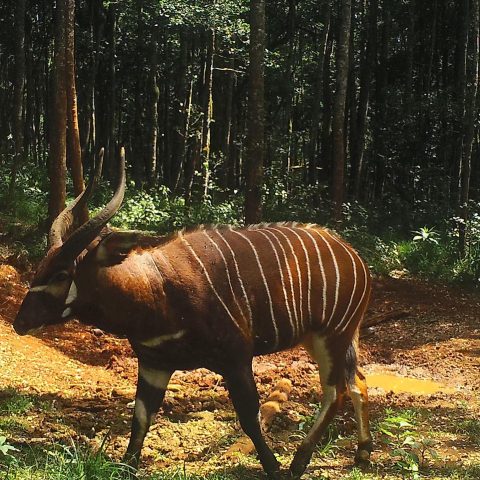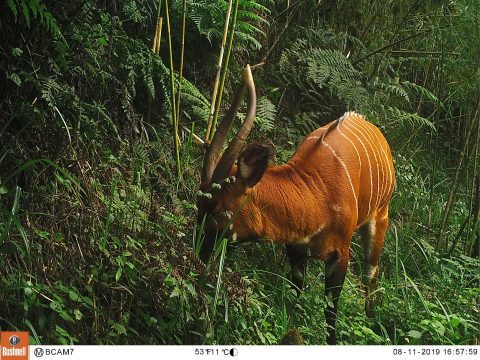Conservation in action
Conservation
Bongo Surveillance Project- Key Info
- What we’re doing
- What you can do
Conservation in action
Bongo Surveillance Project
Dublin Zoo has been supporting the Bongo Surveillance Project since 2010, helping to save Kenya’s mountain bongo. Founded in 2004, the Bongo Surveillance Project is committed to monitoring and conserving the last remaining mountain bongo left in the wild, while also helping to educate and empower local communities.
All images and videos courtesy of the Bongo Surveillance Project.
Donate Today
Bongo Surveillance Project
Dublin Zoo has been supporting the Bongo Surveillance Project since 2010, helping to save Kenya’s mountain bongo. Founded in 2004, the Bongo Surveillance Project is committed to monitoring and conserving the last remaining mountain bongo left in the wild, while also helping to educate and empower local communities.
All images and videos courtesy of the Bongo Surveillance Project.
Conserving mountain bongo in Kenya
The mountain bongo is one of the rarest animals in the world, with less than 100 surviving in the wild. These animals are only found in Kenya, and their populations are split across four isolated mountain forest fragments (Aberdare National Park, Mau Eburu National Forest Reserve, Maasai Mau Forest, and Mount Kenya Forest Reserve). The Bongo Surveillance Project works in all four of these areas, monitoring bongo populations and human activities in the forest.
Trained local trackers use camera traps to help monitor bongo births, and the areas most used by bongo. These trackers also routinely conduct foot patrols to find and remove snares and traps in the forests. These snares are set by local people who are looking to catch wildlife for food. Between September 2020 and February 2021, over 280 snares were collected in the Mau Forest alone.

Status in the wild
The mountain (or eastern) bongo is considered Critically Endangered on the IUCN Red List, with less than 100 animals left in the wild in Kenya. The biggest threat to the mountain bongo is habitat loss, with extensive illegal logging taking place in the Mau and Eburu forests. The mountain bongo is also threatened by diseases from livestock, illegal poaching, and by snares and traps which are set to catch other species for bushmeat.

Wild bongo in the Mau Forest
Community engagement
The Bongo Surveillance Project works with local communities to educate and empower them to conserve the mountain bongo and surrounding habitats. Bongo Wildlife Clubs have been set up in schools near to known bongo locations, and each year over 1,000 students are engaged in conservation education programmes.
Additionally, the Bongo Surveillance Project also works with local communities to support the establishment of more sustainable practices, including bee keeping, fish farming, tree nurseries and water conservation efforts. These initiatives mean local communities do not need to rely on the forest as much, reducing the amount of illegal deforestation and poaching.

Conservation through education
What they say about Dublin Zoo's support
“Dublin Zoo’s yearly support goes a long way in assisting the Bongo Surveillance Project in our efforts to monitor and protect the endemic and Red Listed mountain bongo in Kenya’s highland forests. This work is done in collaboration with both the Kenya Wildlife Service and Kenya Forest Service. This support has also allowed us to continue working with zoos and wildlife Parks around the world in our efforts to re-introduce mountain bongo into their native forest reserves.”
– Mike Prettejohn, Founder of the Bongo Surveillance Project
